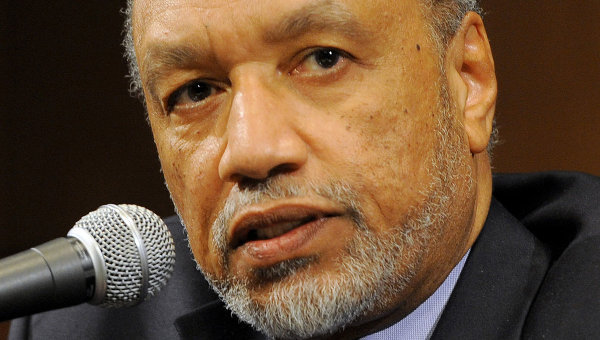A Singapore court accepted World Sports Group’s (WSG) demand that journalist James M. Dorsey expose the confidential sources that contributed to his reports on the Asian Football Confederation’s (AFC) audit of suspended FIFA vice president Mohammed Bin Hammam according to Dorsey’s blog, The Turbulent World of Middle East Soccer.
The AFC ordered the internal audit, which was carried out by Price Waterhouse Cooper (PWC), in order to investigate various financial activities that Bin Hammam had engaged in while serving as president. Its outcome was replete with scandal, shoring up the AFC’s case against Bin Hammam and additionally calling into question a marketing rights agreement forged between AFC and WSG, among other issues.
According to Dorsey’s blog, PWC’s report stated in part, “In view of the recent allegations that have surrounded Mr Hammam, it is our view that there is significant risk that…the AFC may have been used as a vehicle to launder funds and that the funds have been credited to the former President for an improper purpose (Money Laundering risk)” or that “the AFC may have been used as a vehicle to launder the receipt and payment of bribes.” Thus the report threatened to be as damaging to the AFC’s reputation as it was to Dorsey’s.
Dorsey alleges that the WSG ordered him to produce his sources as a means both of discovering its leaks and of deterring future breaches of trust.
Although Singapore’s high court accepted the WSG’s demand, it has stayed its decision in order to allow time for Dorsey to appeal. His lawyers have argued, “that he was not a party to any confidentiality agreement and that if WSG had an issue it should take it up with the AFC to whom the original report was addressed. The lawyers noted further that the code of ethics of journalists in Singapore as well as in numerous Asian countries, including Malaysia and Hong Kong shield journalists from revealing sources.”
Bin Hammam was banned for life from FIFA and related football organizations in September 2011 after envelopes containing $40,000 each were distributed to Caribbean Football Union delegates during Bin Hammam’s campaign for the FIFA presidency.
The life ban was overturned on appeal this past July based on insufficient evidence. In issuing this decision, the Court of Arbitration for Sport made clear that it had not found Bin Hammam innocent of bribery charges, and that FIFA could reopen the case upon the surfacing of new evidence.
In August, FIFA announced its decision to reopen its investigation into the case. In light of this, Bin Hammam was suspended for 90 days from any type of football-related activity in order to ensure he would not interfere with the investigation.



